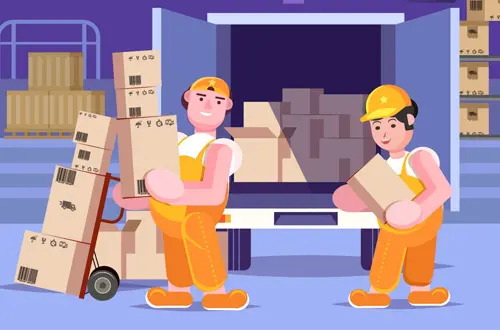The Difference Between FCA, FOB and EXW
In international trade, do you often hear FCA, FOB and EXW? But you don’t know what they mean or are often confused?
What are FCA, FOB and EXW?
FCA(Free Carrier)
In FCA, the seller fulfills its obligation to deliver the goods by handing them over to the carrier or other person designated by the buyer at a designated location (e.g. warehouse, dock, etc.). FCA applies to all modes of transport, including land, sea, air and rail transport

Delivery is completed when the seller hands over the goods to the carrier designated by the buyer. The seller is responsible for export customs clearance, and the buyer assumes responsibility once the goods are handed over to the carrier. This usually occurs when the goods are ready for shipment, but before they enter the buyer's vehicle.
FOB (Free On Board)
FOB means that the seller is responsible for transporting the goods to the port of departure, loading them and handling export procedures. Risk passes to the buyer when the goods are loaded on the vessel designated by the buyer.
Once the goods are on board the ship at the port of shipment, responsibility and risk pass from the seller to the buyer. FOB is specifically used for sea or inland waterway transportation.
When choosing a mode of transportation, buyers and sellers may choose appropriate trade terms based on the characteristics of the goods and transportation needs.
EXW(Ex Works)
In EXW, the seller's liability ends at its premises or other designated place where the goods are supplied to the buyer. Buyer is responsible for all shipping charges, import and export duties and insurance. EXW represents the minimum obligation of the seller and the maximum responsibility of the buyer.
The seller only needs to prepare the goods and deliver them to the location designated by the buyer without assuming any responsibility for transportation and costs. This shared responsibility makes EXW ideal for buyers who have greater control over their supply chain and logistics. If the buyer already has their own logistics channel or partner, they can arrange the transportation of the goods themselves, giving them better control over the entire delivery process.
The difference between FCA and FOB
The main difference between FCA and FOB is that the responsibility for the goods transfers from the seller to the buyer. In FCA, the transfer occurs when the goods are handed over to the carrier, whereas in FOB, the transfer occurs when the goods are loaded onto the ship at the port of shipment.
Similarities Between FCA and FOB
Whether FCA or FOB, the seller must successfully clear the goods from customs and pay all costs during this period, including any customs fees and taxes associated with the customs clearance process.
The seller is required to provide all appropriate customs documentation related to the goods. These documents include commercial invoices, certificates of origin, etc. Each country has different customs documents. Seller shall provide any required documentation.
If the shipment is detained by customs due to lack of adequate documentation or incorrect shipment information. The seller and buyer need to determine who will pay for liability damages.
Differences between EXW and FCA and FOB
EXW differs from FCA and FOB in that it imposes minimal liability on the seller. In EXW, the seller supplies the goods at his premises and the buyer assumes responsibility for all further shipping and import/export procedures.
The main difference between FCA and EXW is the degree of involvement and responsibility of the seller in the shipping process. In the case of EXW, the Seller has minimum obligations beyond supplying the goods at its premises. In contrast, the FCA requires the seller to arrange transportation and ensure that the goods are ready for collection by the carrier.
When choosing between FCA and EXW, be sure to consider your specific business needs and preferences. FCA offers greater flexibility and control over shipping, while EXW puts the logistics burden entirely on the buyer.
While all three terms define the responsibilities of buyers and sellers in international trade, they differ in the point at which responsibility is transferred from seller to buyer and in the extent of the obligations assumed by each party with regard to shipping and import and export procedures.





